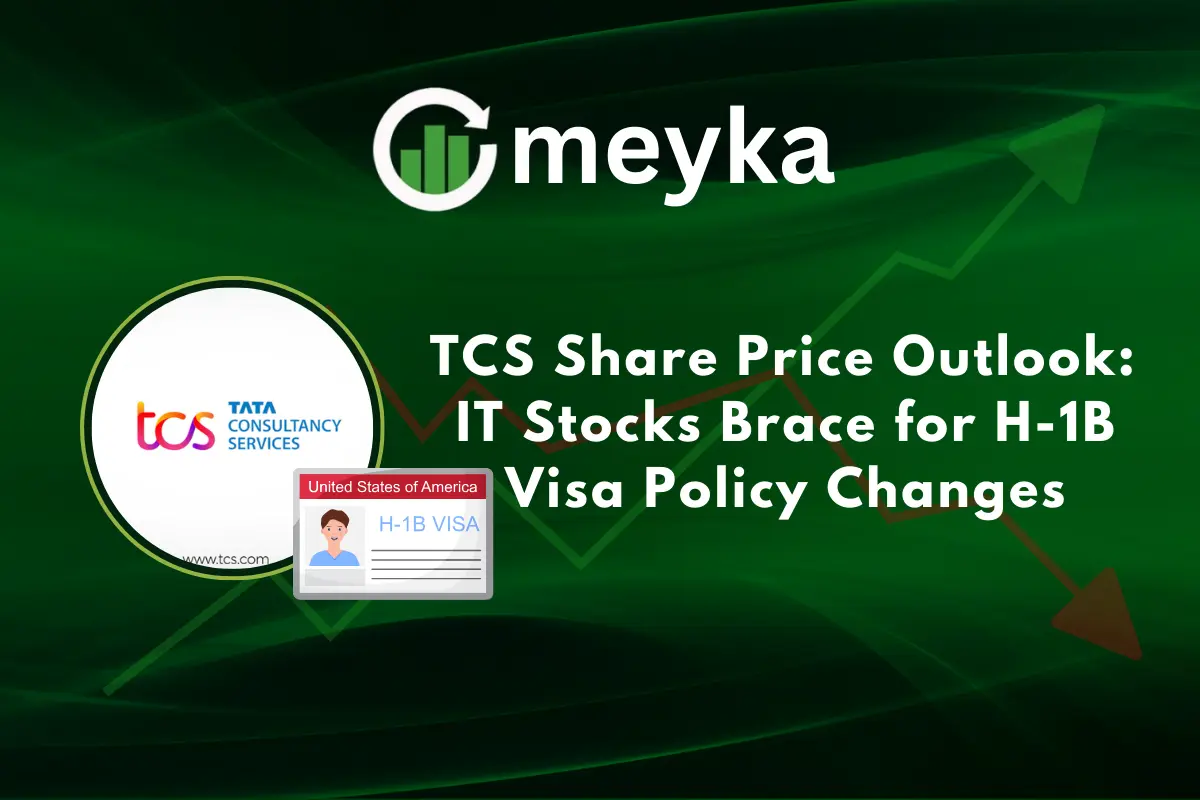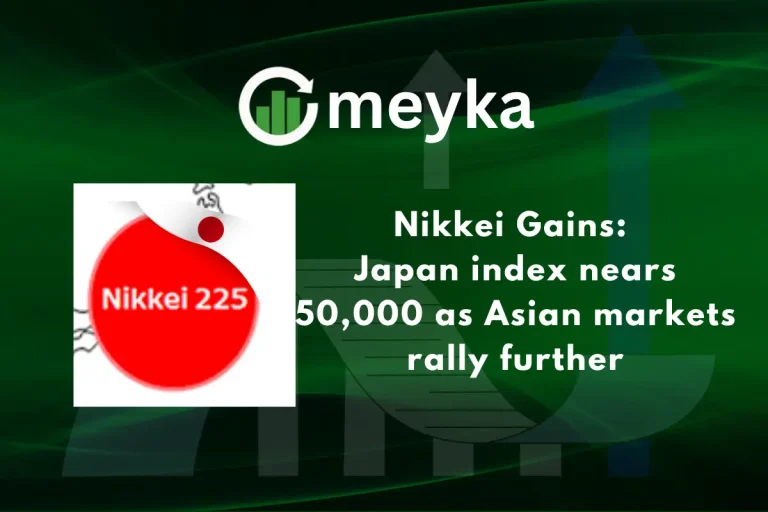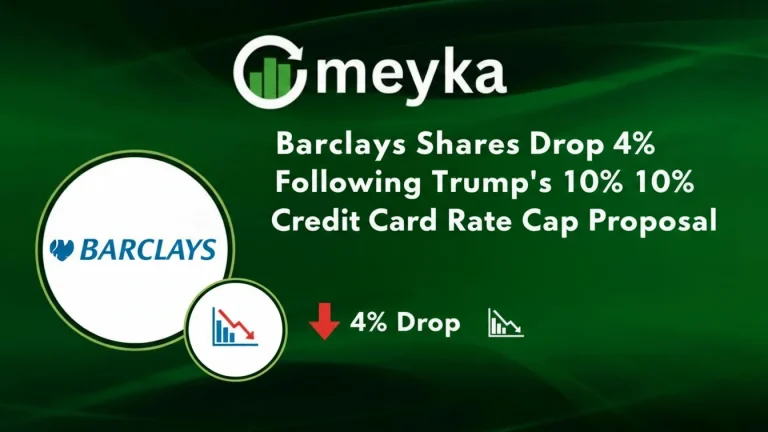TCS Share Price Outlook: IT Stocks Brace for H-1B Visa Policy Changes
The United States issues about 85,000 H-1B visas each year, and a large share goes to Indian IT workers. Companies like TCS (Tata Consultancy Services) depend on this program to place skilled engineers in client locations across the U.S. This policy has shaped the way Indian IT firms grow in global markets. Now, with new rules and political debates around the H-1B program, both investors and companies are watching closely.
TCS is not just any IT firm. It is India’s largest, with a big slice of its revenue tied to the U.S. market. When visa policies shift, the ripple effect can be seen on its hiring plans, delivery models, and even its share price. We know that stock markets move not only on profits but also on expectations. Policy uncertainty can trigger fast reactions.
Let’s look at what these changes mean for TCS and other IT stocks. We will also explore how the company is preparing for the future, and what investors should keep in mind in such an uncertain climate.
About the H-1B Visa Policy and Recent Changes
The H-1B visa lets U.S. firms hire foreign skilled workers. It has been vital to many tech projects. In September 2025, the U.S. moved to change the rules. A new policy imposes a large fee on new H-1B petitions. It also shifts selection toward higher wages. The Department of Homeland Security and USCIS released guidance that affects the 2026 lottery and future filings. These steps aim to limit low-paid placements and push for higher pay. The change has stirred worry across the global IT industry.
TCS and Its Dependency on H-1B Visas
Tata Consultancy Services (TCS) earns a big share of revenue from the U.S. market. The firm also places many staff on H-1B visas for client work. In 2025, TCS had among the highest counts of H-1B approvals compared with peers.
Still, recent annual reports show rising U.S. localization and strong onshore hiring. TCS crossed the $30 billion revenue mark in FY2025, which reduces single-point dependency but keeps U.S. exposure high. The firm’s size and cash buffers give it flexibility to adjust.
Market Sentiment & Immediate Share Price Reactions

Markets reacted fast after the policy news. Indian IT indices fell on the same day of the announcement. Major names, including TCS, slipped as investors priced in higher costs and project risks. News wires and exchanges reported daily swings and higher volatility. Traders often sell on uncertainty. That magnifies short-term moves even when long-term fundamentals remain stable.
Broader Impact on the Indian IT Sector
The new rules do not target a single firm. They affect many service providers that rely on U.S. projects. Firms such as Infosys, Wipro, HCLTech, and Tech Mahindra face the same headwinds. Analysts note that exposure varies across firms. Some firms have already hired more locally in the U.S. Others still rely on traveling staff. The sector’s revenue has a strong U.S. weight, roughly half to six-tenths of total sales for large players, so policy shifts matter.
Strategic Adjustments by TCS
TCS has a few levers to fight the impact. First, the firm can speed local hiring in client countries. TCS has been building nearshore and offshore centers. Second, automation and cloud services cut the need for on-site staff. Third, training programs can upskill local hires and cut visa reliance. Finally, contract models can change, so more work is done remotely.
Company statements say management is already focusing on localization and skill building. These moves will not remove the impact overnight. But they reduce future risk.
Analyst Views and Forecasts
Brokerage notes are mixed. Some analysts expect only a modest hit. They point to low on-site mixes and strong demand for digital services. Others warn of margin pressure on short projects that need on-site teams. Price targets were revised downward in the short term after the policy shock. Many houses now list policy risk and execution risk as top concerns. Investors should watch quarterly updates and management commentary for clearer guidance.
Global Economic and Political Context
Visa policy now ties closely to U.S. domestic politics. The timing of new rules follows an executive move to prioritize local hiring and higher wage jobs. That reflects a broader political aim to protect domestic labor markets. At the same time, global demand for cloud, AI, and digital transformation remains strong. Currency swings can help or hurt margins when revenue is dollar-denominated and costs are in rupees. These forces act together and will shape how fast the sector adapts.
Short-Term Risks and Long-Term Opportunities
Short term, the main risks are higher project costs and slower visa approvals for new placements. That can lower margins for on-site heavy contracts. Stocks may remain volatile while rules are tested in courts or clarified. Long-term, a push toward localization can increase stability. Firms that build local teams and shift to outcome-based contracts may win new clients. Also, investment in automation and AI can raise productivity and protect margins. In short, pressure now could accelerate needed change.
Signals Investors Should Monitor
Look for a few clear signs. First, management comments on the percent of U.S. revenue delivered on-site versus remote. Second, quarterly margins and billing rates. Third, hiring trends in the U.S. and nearshore centers. Fourth, legal updates and clarifications from USCIS. Fifth, client contract renewals and new deal types (remote or outcome-based). These items show whether higher visa costs are being passed to clients or being absorbed by providers.
Final Thoughts
H-1B rule changes bring real near-term pain. They also push the industry to change. TCS is large and flexible. Local hiring, automation, and new contract models can ease the shock. Investors should track company updates, regulatory clarifications, and margin trends. Clear data over the next few quarters will show who adapts fastest and who faces deeper pressure.
Frequently Asked Questions (FAQs)
The new H-1B rules in September 2025 may raise costs and slow projects. This can cause short-term drops in the TCS share price, but long-term demand stays strong.
Indian IT companies like TCS, Infosys, Wipro, and HCLTech face the most risk. Their U.S. revenue share is high, so policy changes in 2025 affect hiring and margins.
Disclaimer:
The above information is based on current market data, which is subject to change, and does not constitute financial advice. Always do your research.






